EXAM-SMART PAP MAY PASS THE TEST
The Prime Minister’s National Day Rally Speech avoids political controversy.
This evening’s National Day Rally Speech was probably Lee Hsien Loong’s best ever, because he played to his government’s strengths – and sidestepped its main weakness.
Compared with most states, the PAP government has traditionally scored an A* in tinkering with policies to stay responsive to the needs of the majority. It has found it harder to excel in this subject lately, perhaps because the local population and the global economy have changed the syllabus. Nevertheless, the PM showcased the PAP’s technocratic talents, trying to tackle key concerns over housing, healthcare and schooling.
Importantly, he recognised that with trust in the PAP’s capacity to deliver at all-time low, a battery of acronyms old and new would not be enough to win the public over. Neither would it suffice to recite past accomplishments, for that would signal complacency on the PAP’s part. Instead, he punctuated the announcements with some simple and powerful words: “I promise,” he said at the start; and “Don’t worry” he declared more than once. These assurances might have fallen flat if they had come from some of his colleagues, but many Singaporeans, even among those who feel his government has lost its way, would concede that his own dedication to his job is hard to fault. When speaking about ordinary Singaporeans who overcame hardships, he had to fight back tears. It’s not the first time. Lee’s eyes may light up when he talks about cutting-edge technology, but they reveal the most emotion when he’s reminded of the lives that can be improved when grassroots grit and sensitive policies meet.
The second T-score-boosting skill of the PAP has been its breathtaking ability to dream big. And it hardly gets bigger than the plans for Changi Airport, Paya Lebar Air Base, the new port at Tuas and the old one at Tanjong Pagar. Of course, when full details are revealed, there will probably be plenty to quibble over. But, in contrast to countries where megaprojects are more discussed than delivered, I don’t think anyone doubts that this government will get the job done.
It was a smart choice to focus on these particular infrastructural projects in the Rally speech. Many Singaporeans are uneasy about their country becoming the region’s playground – which is what the integrated resorts are making it – but few question the ambition to remain Asia’s air and sea transport hub, which is a far deeper, existential part of Singapore’s identity.
If his speech goes down well, it will also be because he didn’t add to the mix the one thing that usually gets stuck in the craw. He made passing reference to the need to “get the politics right” – a line that has featured in most of his major speeches in recent years. But, this time, he’d clearly decided against elaborating on the point. He paid the opposition and other online critics the ultimate insult of ignoring them. Perhaps he decided that, since his government is not ready to cede any ideological ground, it is pointless to attract unnecessary attention to that fact. The PAP may also have arrived at the conclusion that some sections of the population just cannot be won over.
The question is whether the non-inclusion of political reform in the NDR agenda is a sign of things to come, or, rather, not to come. Some of us feel strongly that the Singapore project is incomplete as long as democratic institutions and practices remain underdeveloped. The PAP’s 2011 electoral setback seemed a timely moment to for the ruling party to reconsider its political blueprint. However, there was always going to be an alternative scenario: the PAP would bypass the need for structural political change and focus instead on correcting its social and economic policies to win back the middle ground. Economist and former civil servant Donald Low was among those who saw this as the most likely, though sub-optimal, of the PAP’s possible responses.
It is, after all, the only way it knows how to govern. Singaporeans’ age-old social compact with the PAP was “give me liberty or give me wealth” – as former Straits Times columnist and academic Russell Heng nailed it more than 20 years ago. Many argue that a new generation of Singaporeans cannot be so easily bought – or that this is no longer a tenable trade-off, since wealth creation in the new economy will depend increasingly on more freedom of thought and expression. However, it is an open question whether this theory that authoritarianism is unsustainable was ever anything other than wishful thinking on the part of liberals.
Judging by PM Lee’s speech, it certainly doesn’t look as if the PAP believes that its politics requires a new way forward.
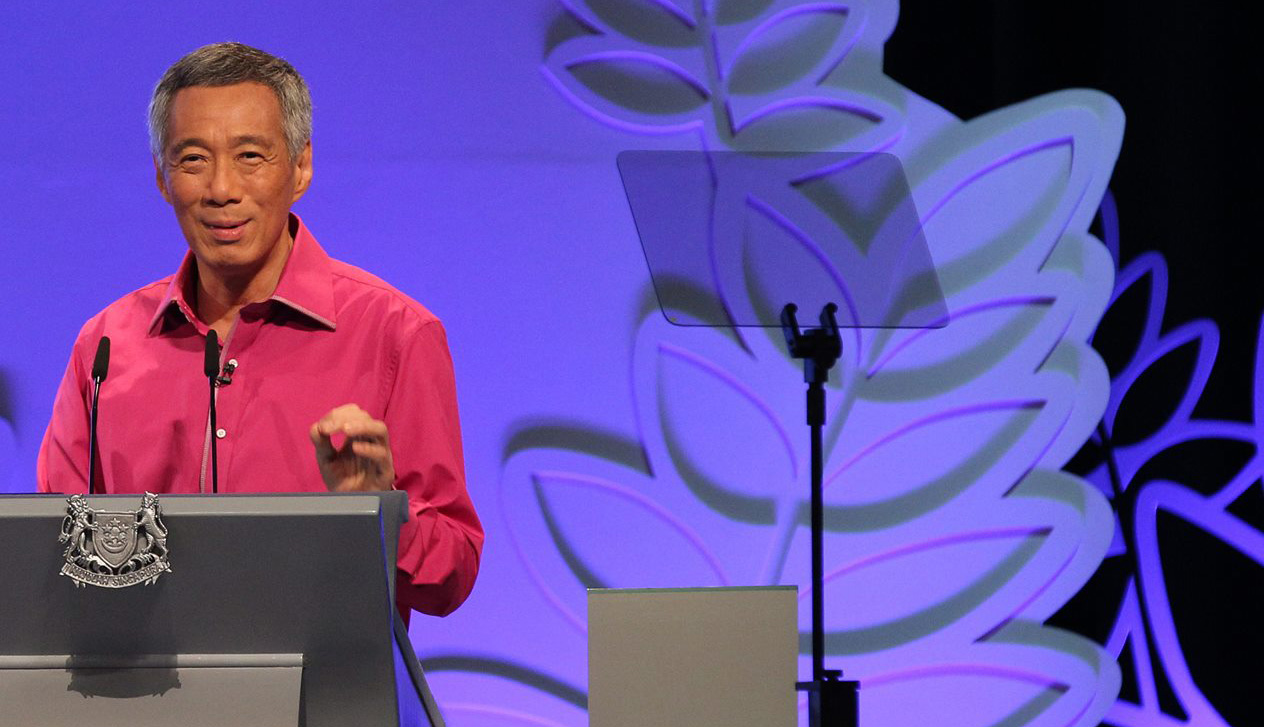
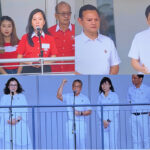

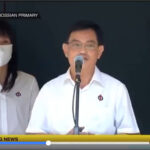

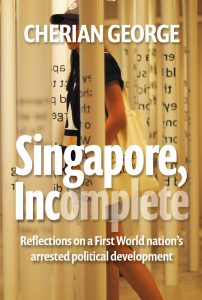
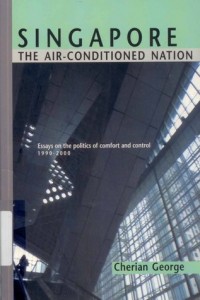
Sam
What you’ve said is exactly what is depressing about PM Lee’s speech. It is patently clear to me that the government’s intention is to keep the democratic institutions neutered so that they can maintain their political stranglehold and continue to enjoy the wide administrative discretion that they have given themselves. The presumption here is that most Singaporeans will not bother about this. Sadly, I think this is so. Singaporeans are indeed daft, politically.
Jason
Singaporeans are not daft. The majority of Singaporeans are politically apathetic because they know deep down that our government is capable of delivering what it promises, hence there’s no need for them to “interfere”.
Also, “political stranglehold” is simply a very negative term for “control”. In order for a government to do a good and thorough job, it needs resources and control. There’s no point in loosening the strings in the name of “democracy” only to make things harder for itself to execute its duties.
Sam
Jason, your arguments are basically no different from what Singaporeans have been brain-washed by the government controlled media to accept. They are short-sighted arguments. The government has used (or abused?) their absolute parliamentary majority to give themselves wide ranging powers and discretion and weaken the powers of our institutions in the area of politics. This only serves to increase the risk to our nationhood because the system of checks and balances have been considerably weakened. It also explains to a large extent the disconnect between the government and the people because the government has been having it too easy due to the lack of a robust checks and balance system.
Nathanael Lin
If a majority of Singaporeans are not interested in stronger democratic institutions, who are you to impose it on them?
Only time will tell if this mode of governance is short-sighted — you can make compelling arguments both ways using logic. But this system has served Singapore well enough for the past 48 years, and changing it now without empirical evidence seems risky and irresponsible to me.
Sam
Nathanael, did I say anything about imposing anything? I am merely arguing that weak institutions are inherently more risky that strong institutions as the checks and balances are more wanting. If you are satisfied with weak institutions, that’s your perogative. If you don’t wish to look beyond your nose, that too is your perogative.
Nathan Goh
We must be very clear what do we want and what the government should do. For most Singaporean, it is livelihood first which include a job, housing, low inflation and maybe a few holidays. It is not about political ideology or the ultimate democracy. And we should not classify modification/correction to policies in this case as “bought” or “paying” for support from the people. For me, give me a good livelihood over political idealism any day. As Deng Xiao Ping says, “whether it is a black cat or a white cat, at long as it catches rats, it is a good cat.” For the everyday Singaporean, it is not the means by the ends that matters.
seorang
Deng’s quote on the “white-cat black cat” thingy has to be understood in context.
I am not very sure about the historical situation, but I think he was trying to be pragmatic and was battling the ultra-conservatives in the Communist Party, some of whom might be very good Communists, but suspicious of any foreign investment.
In Henry Kissinger’s book ‘On China’, he wrote about Deng’s leadership.
_____________________________________
China as the present-day economic superpower is the legacy of Deng Xiao Ping. It is not that he designed specific programs to accompany his ends. Rather, he fulfilled the ultimate task of a leader — of taking his society from where it is to where it has never been.
Societies operate by standards of average performance. They sustain themselves by practicing the familiar. But they progress through leaders with a vision of the necessary and the courage to undertake a course whose benefits at first reside largely in their vision.
____________________________________
Vision in leadership is necessary.
As the saying goes, “Men does not live by bread alone”.
Yapp
to me these policy tweeks are long time coming and the govt has to respond to realities of the new world. Any biz enterprise cannot sit still even if its mkt share continues to erode. It is not radical shift – medishield universal coverage shd have been there all along – after all the $ is sitting in the account as ‘cash’ and can easily be tweaked to overlay the insurance aspect. education investment has to increase bec it has fallen behind a great deal in the new world – i wld argue that much much more can be done in this aspect and there is too much control of the syllabus such tt diversity is limited in the fast changing world. Housing subsidies are a function of land price – but the basis of the subsidy and how that is worked to maintain consistency with rising land prices. I am not sure infrastructure projects that are iconic are necessarily return accretive. I question another indoor garden that is expensive to maintain and is not a decision changer for its hub status. These industries are old world and its a fact tt other countries will catch up sooner or later. pouring in more money doesn’t make our returns better.
Clement Mesenas
Men and women need to be free … to think and contribute to the greater good of society. Shackle their mind and they becomes part of an indoctrinated society … people who merely follow — like lemmings that rush blindly to their demise.